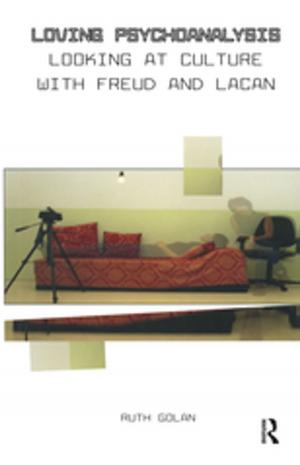Agents of Discord
Deprogramming, Pseudo-Science, and the American Anticult Movement
Nonfiction, Religion & Spirituality, New Age| Author: | ISBN: | 9781351533225 | |
| Publisher: | Taylor and Francis | Publication: | December 2, 2017 |
| Imprint: | Routledge | Language: | English |
| Author: | |
| ISBN: | 9781351533225 |
| Publisher: | Taylor and Francis |
| Publication: | December 2, 2017 |
| Imprint: | Routledge |
| Language: | English |
"It is widely acknowledged that the United States has always provided fertile ground for the growth of new religious movements and cults, but modern organized efforts to oppose and restrict them have been less well understood. In Agents of Discord, Anson Shupe and Susan E. Darnell offer a groundbreaking analysis of the operations and motives of these oppositional groups, which they generally group under the umbrella term of the anticult movement.Historically there have always been parallel groups opposed to certain religious movements, whether these be anti-Quaker, anti-Roman Catholic, or anti-Mormon. The authors establish the cultural context of such movements in the nineteenth century. They point out the link between modern anticult movements and nativist movements in American history. Turning to the postwar era, the authors discuss the rise of anticult movements and focus specifically on one of the most prominent, the Cult Awareness Network (CAN). CAN was a two-tiered organization. Partly composed of volunteers, donors, and families affected by cult movements, it also included what the authors call an ""inner sanctum"" of behavioral science professionals, attorneys, and deprogrammers. Using never-before-reported data on CAN's activities, the authors cite an extensive history of financial impropriety that finally led to the organization's bankruptcy. They offer a pointed critique, informed by current scholarship, of the ""brainwashing"" model of mental enslavement presented by the anticult movement that has been a central assumption undergirding its activities. At the same time, they show how increasing professionalization has gradually begun a shift of such movements to a therapeutic model of exit counseling that rejects the crude methods of earlier intervention strategies.In their analysis of the anticult movement nationally and internationally, Shupe and Darnell merge sociological concepts and social history to make unique sense of a hereto"
"It is widely acknowledged that the United States has always provided fertile ground for the growth of new religious movements and cults, but modern organized efforts to oppose and restrict them have been less well understood. In Agents of Discord, Anson Shupe and Susan E. Darnell offer a groundbreaking analysis of the operations and motives of these oppositional groups, which they generally group under the umbrella term of the anticult movement.Historically there have always been parallel groups opposed to certain religious movements, whether these be anti-Quaker, anti-Roman Catholic, or anti-Mormon. The authors establish the cultural context of such movements in the nineteenth century. They point out the link between modern anticult movements and nativist movements in American history. Turning to the postwar era, the authors discuss the rise of anticult movements and focus specifically on one of the most prominent, the Cult Awareness Network (CAN). CAN was a two-tiered organization. Partly composed of volunteers, donors, and families affected by cult movements, it also included what the authors call an ""inner sanctum"" of behavioral science professionals, attorneys, and deprogrammers. Using never-before-reported data on CAN's activities, the authors cite an extensive history of financial impropriety that finally led to the organization's bankruptcy. They offer a pointed critique, informed by current scholarship, of the ""brainwashing"" model of mental enslavement presented by the anticult movement that has been a central assumption undergirding its activities. At the same time, they show how increasing professionalization has gradually begun a shift of such movements to a therapeutic model of exit counseling that rejects the crude methods of earlier intervention strategies.In their analysis of the anticult movement nationally and internationally, Shupe and Darnell merge sociological concepts and social history to make unique sense of a hereto"















